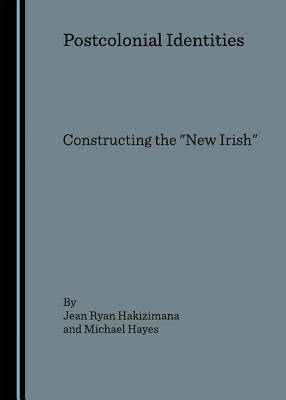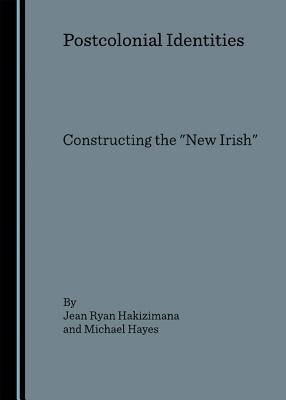
- Retrait gratuit dans votre magasin Club
- 7.000.000 titres dans notre catalogue
- Payer en toute sécurité
- Toujours un magasin près de chez vous
- Retrait gratuit dans votre magasin Club
- 7.000.000 titres dans notre catalogue
- Payer en toute sécurité
- Toujours un magasin près de chez vous
Postcolonial Identities: Constructing the New Irish
Jean Ryan Hakizimana, Michael Hayes
Livre relié | Anglais
71,45 €
+ 142 points
Description
The stranger, the foreigner and the pilgrim are all familiar figures in literature, philosophy, theology and mythology. This figure - travelling the world in search of refuge and sanctuary - is one which has had a particular resonance for many millions of Irish people in recent centuries. This book is a window on a new aspect of the Irish experience that is the strainseir or pilgrim. It is one man's story of exile and renewal in a world where the concepts of home, place and diaspora are all changing at frightening speed. Jean Ryan Hakizimana's story is the story of an artist, the colours of whose palette reflect the multicultural tapestry that is Irish society today. It is a narrative that involves a journey halfway across the globe, a portrait of the modern world incorporating exile, starvation, and genocide before the final liberation that is the healing process of painting. Traumatised from the horrific childhood experiences he witnessed during the genocides of Burundi and Rwanda in the mid-1990s it was almost a decade later and at a distance of many thousands of miles that African artist Jean Ryan once again found the will to paint. This book sheds light on the diaspora experience of the new Irish, the refugees and asylum-seekers who are changing the face of many of Ireland's villages and towns that until recently had been emptied by widespread emigration. The economic miracle that has transformed Ireland in the past decade has been accompanied by much rhetoric regarding multiculturalism, integration and dialogue with the newer peoples and cultures that now live in Ireland. As of yet, however, there has been few attempts to chronicle or engage in dialogue with the many different aspects of the diaspora experience that define these new Irish, the young Irish who will carry a renewed and exciting new Irish identity into the future. One of the greatest challenges facing Irish society and the indeed the Irish educational sector is how best to harness the benefits of the wide range of cultural experiences, values and peoples that are now part of the Irish cultural fabric. This book is one of the first attempts at such a new an exciting intercultural dialogue in Ireland. It is only through such a process of dialogue that we may uncover a new politics of truth (Foucault, 1977), a new discourse and a more productive understanding of the relationship that now exists between the various strands of Ireland's multicultural society.
Spécifications
Parties prenantes
- Auteur(s) :
- Editeur:
Contenu
- Nombre de pages :
- 118
- Langue:
- Anglais
Caractéristiques
- EAN:
- 9781847180667
- Date de parution :
- 01-10-06
- Format:
- Livre relié
- Format numérique:
- Genaaid
- Poids :
- 771 g







